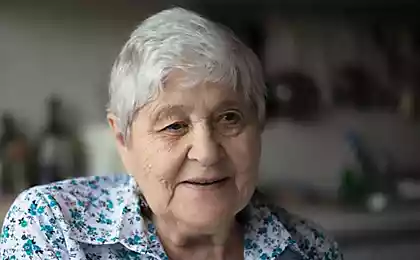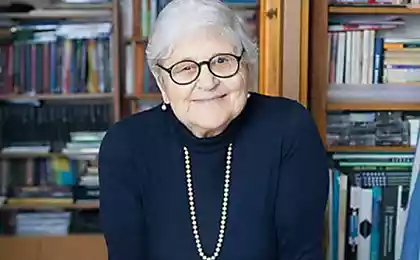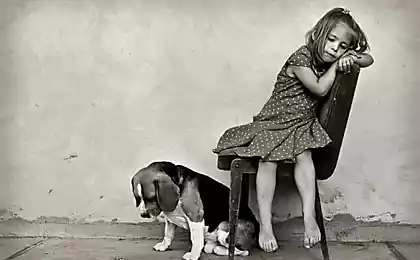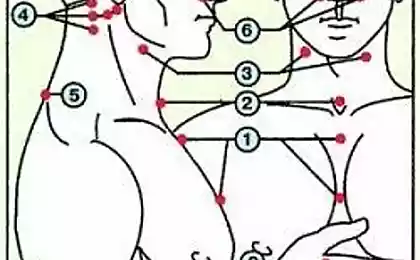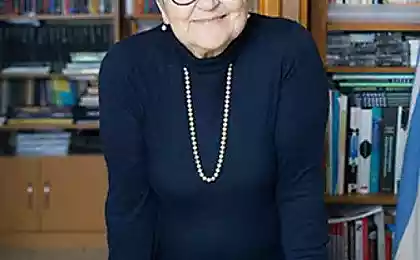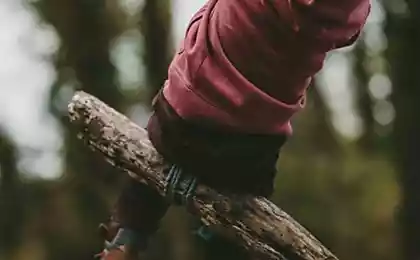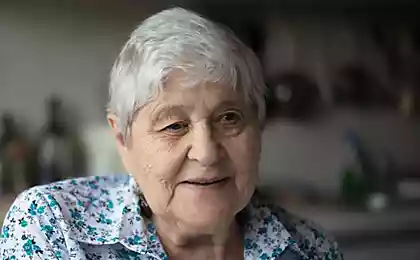699
15 IMPORTANT tips from Yulia Gippenreiter education
Julia Borisovna Gippenreiter in his numerous books on psychology draws the attention of parents to how they interact with their children and how to talk with them. We have chosen the most important, in our opinion, the statements of a famous psychologist about the behavior of children and parents, so we can better understand each other.
1. Of course to adopt a child is to love him not because he's handsome, smart, capable, achiever, helper and so on, andjust simply for what it is!

2. Do not interfere in the case, which occupied the child, if he asks for help. His laissez-faire you will tell him: "you're all right! Of course, you can do it!"
3. If the child is difficult and it is ready to accept your help, help him. In this case take only what he cannot perform himself, leave the rest to him to do. With the development of a child new activities gradually give them to him.
4. Tomorrow the child will do today what he did with my mother, and due to the fact that it was "mom". Area cases together is the gold reserves of the child's potential for the near future.
5. Gradually, but steadily remove themselves from the care and responsibility for the personal Affairs of your child and give them to him.
6. Personality and abilities of the child develop only to the activities he engaged in on their own and with interest.
7. There are situations when a child can be hit. Yes, it is known that Pushkin was flogged their children, but then it was the norm.
8.You can Express your displeasure at the actions of the childbut not the child in General. You can condemn the actions of the child, but not his feelings, no matter how undesirable or impermissible. Dissatisfaction with the actions of the child should be systematic, otherwise it will grow into a rejection of him.
9.Embracing the child several times a day, 4 hugs each absolutely necessary for mere survival and for good health you need at least 8 hugs a day! And by the way, not only the child but an adult.

10. Think of a few sessions with a child or a fewfamily traditions that will create a zone of joy. Do some of these tasks or regular cases, the child was waiting for them and knew that they will come necessarily, unless he does something very bad. Cancel it only if there was a really tangible offense.
11.The best punishment for a child is to deprive him of good, and not make him bad.
12. Children much more than we, adults, need to move, explore things, try their hand. To ban such actions — like trying to dam the overflowing river. Better to think about how to direct its course in a convenient and safe way.
13. Children not only need order and rules of conduct they want and wait for them! It makes their life is understandable and predictable, creates a sense of security.
14. The child warm, when you understand his needs. One of the most important is the freedom to explore and to experience. The child explores its possibilities — and gradually raises the bar. When he's little, he wants to climb higher up the tree, growing up to run with friends in a neighboring yard, becoming even older — to return home later than usual. Here a lot depends on how parents behave. Notations and prohibitions impotent.
15. All that we wish to change in children, should be first of all carefully check: is not it the fact that it would be better to change in ourselves. For example, our pedagogical enthusiasm. Probably it is better to send to yourself. published
Author: Yulia Gippenreiter
P. S. And remember, only by changing their consumption — together we change the world! ©
Source: ponaroshku.ru/blog/15-vospitatelnykh-pravil-ot-gippenreyter/
1. Of course to adopt a child is to love him not because he's handsome, smart, capable, achiever, helper and so on, andjust simply for what it is!

2. Do not interfere in the case, which occupied the child, if he asks for help. His laissez-faire you will tell him: "you're all right! Of course, you can do it!"
3. If the child is difficult and it is ready to accept your help, help him. In this case take only what he cannot perform himself, leave the rest to him to do. With the development of a child new activities gradually give them to him.
4. Tomorrow the child will do today what he did with my mother, and due to the fact that it was "mom". Area cases together is the gold reserves of the child's potential for the near future.
5. Gradually, but steadily remove themselves from the care and responsibility for the personal Affairs of your child and give them to him.
6. Personality and abilities of the child develop only to the activities he engaged in on their own and with interest.
7. There are situations when a child can be hit. Yes, it is known that Pushkin was flogged their children, but then it was the norm.
8.You can Express your displeasure at the actions of the childbut not the child in General. You can condemn the actions of the child, but not his feelings, no matter how undesirable or impermissible. Dissatisfaction with the actions of the child should be systematic, otherwise it will grow into a rejection of him.
9.Embracing the child several times a day, 4 hugs each absolutely necessary for mere survival and for good health you need at least 8 hugs a day! And by the way, not only the child but an adult.

10. Think of a few sessions with a child or a fewfamily traditions that will create a zone of joy. Do some of these tasks or regular cases, the child was waiting for them and knew that they will come necessarily, unless he does something very bad. Cancel it only if there was a really tangible offense.
11.The best punishment for a child is to deprive him of good, and not make him bad.
12. Children much more than we, adults, need to move, explore things, try their hand. To ban such actions — like trying to dam the overflowing river. Better to think about how to direct its course in a convenient and safe way.
13. Children not only need order and rules of conduct they want and wait for them! It makes their life is understandable and predictable, creates a sense of security.
14. The child warm, when you understand his needs. One of the most important is the freedom to explore and to experience. The child explores its possibilities — and gradually raises the bar. When he's little, he wants to climb higher up the tree, growing up to run with friends in a neighboring yard, becoming even older — to return home later than usual. Here a lot depends on how parents behave. Notations and prohibitions impotent.
15. All that we wish to change in children, should be first of all carefully check: is not it the fact that it would be better to change in ourselves. For example, our pedagogical enthusiasm. Probably it is better to send to yourself. published
Author: Yulia Gippenreiter
P. S. And remember, only by changing their consumption — together we change the world! ©
Source: ponaroshku.ru/blog/15-vospitatelnykh-pravil-ot-gippenreyter/
